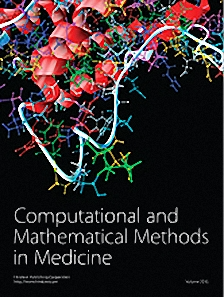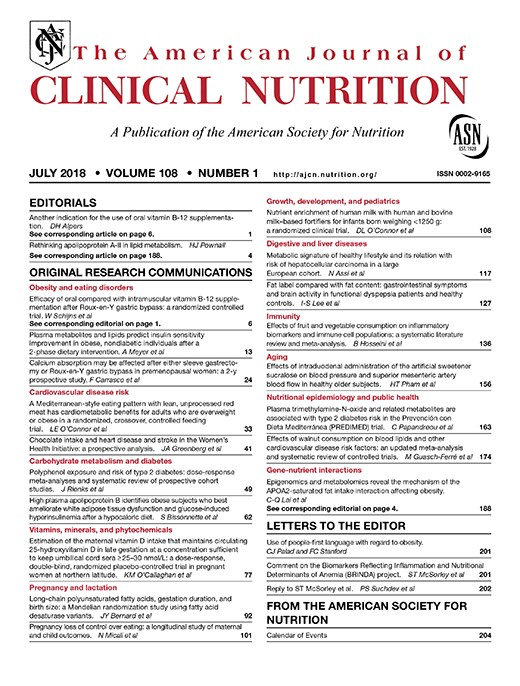Eye Fatigue
How to submit an article:
- Registered users can submit any published journal article that has a unique DOI (Digital Object Identifier) name or link to Research Hub.
- For example, you can paste the full DOI link:
https://doi.org/10.1109/5.771073or just the DOI name:10.1109/5.771073into the field above and click submit. - The person who is first to submit a valid article to Research Hub will forever be credited for it, and every article submission earns you +6 Research Points.
Related Topics
Published research studies are articles that present the findings of original research that has undergone a peer-review process and has been made publicly available in scholarly journals, books or other media.

Network Pharmacology, Molecular Docking, and Molecular Dynamic-Based Investigation on the Mechanism of Compound Chrysanthemum in the Treatment of Asthenopia
2022 Dec 30 Computational and Mathematical Methods in Medicine Qiu J, Zheng B, Zhou H, Ye C, Shi M, Shi S, et al.
Network Pharmacology Eye Fatigue ChrysanthemumCompound Chrysanthemum extract may alleviate visual fatigue through its interaction with several components, targets, and pathways.

A novel botanical formula improves eye fatigue and dry eye: a randomized, double-blind, placebo-controlled study
2020 Aug The American Journal of Clinical Nutrition Kan J, Wang M, Liu Y, Liu H, Chen L, Zhang X, et al.
Randomised Controlled Trial Goji Berry Dry Eye Blackcurrant Lutein Eye Fatigue Zeaxanthin ChrysanthemumA botanical formula of lutein ester, zeaxanthin, and extracts from blackcurrant, chrysanthemum, and goji berry can effectively lessen eye fatigue and improve macular function.
Research insights are moderated by the Research Hub team and offer an at-a-glance overview of interesting research findings.

2022 Computational and Mathematical Methods in Medicine
Compound Chrysanthemum extract may alleviate visual fatigue through its interaction with several components, targets, and pathways.
Network Pharmacology Chrysanthemum
Network Pharmacology, Molecular Docking, and Molecular Dynamic-Based Investigation on the Mechanism of Compound Chrysanthemum in the Treatment of Asthenopia
Qiu J, Zheng B, Zhou H, Ye C, Shi M, Shi S, et al.

2020 The American Journal of Clinical Nutrition
A botanical formula of lutein ester, zeaxanthin, and extracts from blackcurrant, chrysanthemum, and goji berry can effectively lessen eye fatigue and improve macular function.
Randomised Controlled Trial Blackcurrant Chrysanthemum Dry Eye Goji Berry Lutein
A novel botanical formula improves eye fatigue and dry eye: a randomized, double-blind, placebo-controlled study
Kan J, Wang M, Liu Y, Liu H, Chen L, Zhang X, et al.
Review Articles
Review articles summarise and critically evaluate the current state of research on a specific topic or field by synthesising multiple primary research studies.
Clinical Trials
Clinical trials are research studies that involve people and are conducted to evaluate the safety and efficacy of new treatments or interventions, such as drugs, medical devices, or behavioural therapies.
Study Protocols
Published study protocols are detailed plans that outline the objectives, methodology, statistical analyses, and organisation of a research study that have been made publicly available for others to review and use as a reference.
Presentation Slides

Network Pharmacology
Compound Chrysanthemum extract may alleviate visual fatigue through its interaction with several components, targets, and pathways.
Qiu J, Zheng B, Zhou H, Ye C, Shi M, Shi S, Wu S

Randomised Controlled Trial
A botanical formula of lutein ester, zeaxanthin, and extracts from blackcurrant, chrysanthemum, and goji berry can effectively lessen eye fatigue and improve macular function.
Kan J, Wang M, Liu Y, Liu H, Chen L, Zhang X, Huang C, Liu BY, Gu Z, Du J
Executive Summary
Write an executive summary in the form of a blog article on the topic of "Research into Chinese medicine treatment for Eye Fatigue" summarising the research below and using language that can be easily understood by patients and avoiding medical jargon using a professional and caring tone of voice.
Write an executive summary in the form of a blog article on the topic of "Researched Chinese medicine treatments for Eye Fatigue" summarising the research below in an objective and easy to understand way, and using language that can be easily understood by patients. Group the article into Chinese medicine treatments first, followed by nutrition and other treatments. Avoid using medical jargon and use a professional and caring tone of voice.
Write me a concise but easy to understand executive summary on the topic of "Chinese medicine treatments for Eye Fatigue" based on the following research that I will give you. Your summary should be 2 paragraphs long in Australian English spelling and include references to the studies.
A Network Pharmacology published in 2022 in the journal Computational and Mathematical Methods in Medicine found that Compound Chrysanthemum extract may alleviate visual fatigue through its interaction with several components, targets, and pathways. Regarding methodology, this study combined network pharmacology with experimental research to uncover the mechanisms by which Compound Chrysanthemum alleviates asthenopia. Firstly, molecular docking analysis was employed to identify a total of 593 essential genes and 39 chemicals present in the compound. This helped ascertain the affinity between key compounds and receptors, PRKACA, PRKCA, PRKCB. This was followed up with molecular dynamic simulations that further evaluated the stability of these receptors and ligands. Concurrently an in vitro examination of the compound's effect on ciliary muscle was conducted, using MTT assay to study different concentrations of the compound's effect on the proliferation of rCSMCs over 24 and 48 hours. The discussion of the results suggests that the extracts had significant impacts in several areas. Among the notable outcomes of the in vitro experiment was an increase in nitric oxide production and a decrease in Ca in ciliary muscle cells. The compound was also found to have a relaxing effect on the isolated gastric smooth muscle of rats by reducing contractile tension. In an in vivo experiment, rats treated with the compound displayed retracted pupils and increased NO content compared to the model group. A considerable contribution to the understanding of the compound's effect was the acknowledgment of its role in modulating the expression of PKA and PKC in the crucial calcium signaling pathway. The coordinated culmination of these findings indicates the compound's multi-faceted approach to alleviating visual fatigue.
A Randomised Controlled Trial published in 2020 in the journal The American Journal of Clinical Nutrition found that A botanical formula of lutein ester, zeaxanthin, and extracts from blackcurrant, chrysanthemum, and goji berry can effectively lessen eye fatigue and improve macular function. Research methodology involved the distribution of 360 randomly selected participants into four groups where they received placebos and three varied doses of a botanical formula. This formula, given in chewable tablets comprised of 6 mg, 10 mg, or 14 mg of lutein. Each participant was administered these once daily over a period of 90 days, and had three check-ins at the beginning, at day 45, and finally on day 90 of the study. The results of the study indicated that the botanical formula effectively improved the individual scores of participants on eye fatigue symptoms like eye soreness, blurred vision, dry eyes, foreign body sensation, and tearing. Using the formula resulted in a notable decrease in the total score of eye fatigue symptoms at both the 45-day and 90-day intervals as compared to the placebo while also significantly improving visuognosis persistence time. Tear secretion improvement was observed in the groups having 10mg and 14mg lutein formula, supported by the Schirmer test. Furthermore, the results showed an increase in macular pigment optical density with all three doses of the formula, but no significant alterations were observed in the retinal thickness and retinal volume among all the groups at both check-ins.
Moderation Tools
Topic
Sign In
Users not signed in are limited to viewing the 5 most recent items of content.